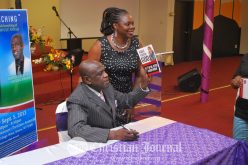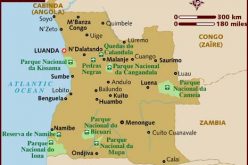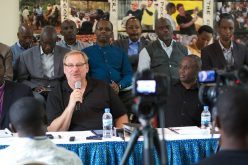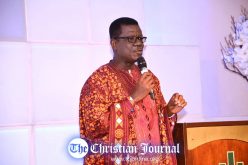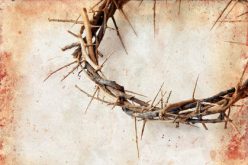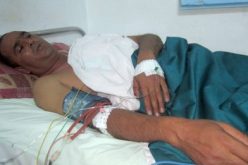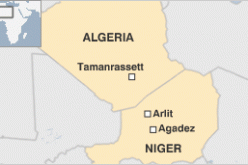 The Guardian – Opposition politicians in Burundi have urged voters to peacefully resist an effort by authorities to “steal power” in a referendum that some fear could spark widespread violence.
The Guardian – Opposition politicians in Burundi have urged voters to peacefully resist an effort by authorities to “steal power” in a referendum that some fear could spark widespread violence.
Burundians are being asked to vote yes or no to a proposal to extend the presidential term from five years to seven, which would allow the incumbent, Pierre Nkurunziza, to rule for up to 14 more years after his current term expires in 2020.
A yes vote would also boost the president’s powers and allow changes to the distribution of top government posts according to ethnicity. Critics fear this will upset a delicate balance between communities that has preserved peace since the end of a civil war.
Tensions have been running high for months amid a wave of alleged detentions and killings of the government’s perceived opponents. At least 26 people were killed in an attack in the north-western province of Cibitoke on Friday. It is unclear whether the massacre was politically motivated.
Aimé Magera, a spokesman for the National Liberation Forces (FNL), an opposition party, said campaigners for a no vote had made a “massive breakthrough” in recent days. “The people have overcome their fear and come out in huge numbers. We are going to resist right to the end,” he said. “We will show to the international community that the Burundian people are awake and standing and need help.”
On Thursday government officials described long queues of voters waiting “in calm and serenity”. The electoral commission said the vote represented a “historic rendezvous with democracy and the consolidation of national sovereignty”.
“It’s for the people of Burundi to decide about their future and nobody else,” said Gen Evariste Ndayishimiye, the ruling party’s secretary general.
Opposition officials said ruling party volunteers had systematically accompanied voters into booths while many of their own observers had been ejected. There were no reports of violence, however.
Burundi’s government has been under pressure from international institutions and organisations in recent weeks. The UN high commissioner on human rights, Zeid Ra’ad al-Hussein, urged authorities to “assume [their] responsibility in order to ensure Burundi people peace, security and a fully functioning democracy”.
The EU and the US have denounced intimidation, repression and harassment of opposition supporters. Magera said: “We have been beaten, threatened, harassed and attacked. So many have been arrested it is impossible to count.”
Amnesty International and Human Rights Watch have repeatedly documented widespread abuses by security forces and government-sponsored organisations.
Burundi’s government has said the charges are malicious propaganda spread by exiles. Last week it suspended BBC broadcasts in the country for six months, accusing the corporation of spreading ideas that discredited the president. Voice of America broadcasts were also suspended.
Yves-Lionel Nubwacu, a presidential aide, told the Guardian: “The campaign has been free and contested. All different opinions have been represented on the airwaves … and some of the officials of these international organisations that have been so critical are far from objective.”
Nkurunziza, a former teacher and rebel leader who is the son of a Hutu father and a Tutsi mother, has been in power since 2005. A born-again Christian who won some support with public displays of faith, he was re-elected unopposed in 2010 after the opposition boycotted the vote.
In 2015 he triggered a crisis by pursuing a third term. More than 1,000 people have died and more than 400,000 have fled the country since.
SOS Medias Burundi, a network of independent journalists, reported the arrests of more than 50 members of the opposition coalition Amizero y’Abarundi in a single week last month.
Amnesty International has highlighted the case of Germain Rukuki, a human rights activist who was sentenced to 32 years in prison on charges that included rebellion.
Richard Moncrieff, a regional specialist with the International Crisis Group, said the government was “unravelling the settlement that ended the civil war, and that does not augur well”.
Some opposition figures have called for armed resistance. “We now need … to remove [Nkurunziza] by use of arms,” said Hussein Radjubu, a former ruling party official who was arrested on treason charges but later escaped from prison. Like many in the fragmented opposition, Radjubu now lives overseas.
Ben Shepherd, an expert in the region at London’s Chatham House, said “one big unanswered question” was the level of popularity of Nkurunziza in rural areas.
“There’s a sense that the ruling party has been seen as fighting the good fight for Burundi’s rural poor,” Shepherd said.
The peace accord that ended the civil war ensured that the national and local government, parliament and the senate are composed of both Hutu and Tutsis, split 60% to 40%. This settlement is now threatened, analysts say.
Other proposed constitutional changes include the appointment of a prime minister by the president, which would consolidate the position of the ruling party and could prevent some opposition politicians from running for office.
Members of the Imbonerakure, the ruling party’s youth wing, have urged supporters to harass opposition members and even to “impregnate” them, and are alleged to have threatened those who appeared unlikely to vote in the referendum.
The ruling party’s secretary general blamed western powers for destabilising Burundi and said those who voted against the proposed changes to the constitution were “enemies of the nation”.


